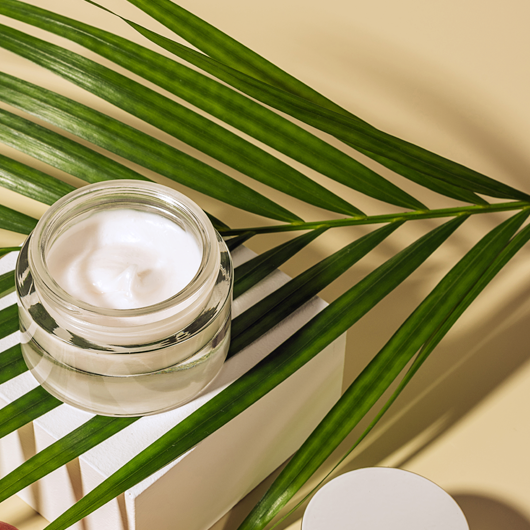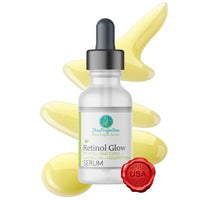Vitamin A
Vitamin A Beta Carotene
 Scientific Name: {Beta Carotene}
Scientific Name: {Beta Carotene}
Common Name: {Vitamin A, b-carotene}
Latin Name: {Daucus carota}
Family: {Umbelliferea}
Vitamin A is a carotenoid. They are found naturally in our environment as beta-carotene, which is the stuff that makes carrots orange.
It is also one of the essential vitamins in your body. This vitamin ensures that our immune system remains healthy. It also ensures that the skin is regenerated and fit when applied topically.
It helps teach the skin to produce and retain the right amount of moisture and makes it more resilient.
Women with facial sensitivity or easily irritated can benefit from adding vitamin A to their skincare routine.
Vitamin A's primary function is as an antioxidant. Not only does it help keep skin looking beautiful, but it protects against free radicals. Free radicals are created when we eat, are exposed to chemicals, or spend too much time in the sun.
Vitamin A, often found in skincare products in the form of retinoids or retinol, offers numerous benefits for the skin.
Top Five Benefits of Using Vitamin A on the Skin
-
Anti-Aging Effects: Vitamin A is renowned for its ability to stimulate the production of collagen, a protein responsible for maintaining skin's elasticity. This helps reduce the appearance of fine lines and wrinkles, giving the skin a more youthful look.
-
Cell Turnover and Renewal: Vitamin A promotes faster cell turnover, which means it helps the skin shed old cells more quickly and replace them with new, healthy cells. This results in a brighter and more even skin tone.
-
Acne Treatment: By regulating oil production and promoting cell turnover, Vitamin A can be effective in preventing acne breakout, unclogging pores, and reducing acne-related inflammation.
-
Improved Skin Texture: With its ability to stimulate collagen and encourage cell renewal, Vitamin A can smoothen the skin's surface, reducing roughness and improving overall texture.
-
Hyperpigmentation Reduction: Vitamin A can help in fading age spots, sunspots, and other forms of hyperpigmentation by accelerating the shedding of pigmented and aged skin cells and promoting the production of new ones.
These fast-moving atoms move quickly from cell to cell, oxidizing every cell's components to the touch, killing them off, or making it more difficult for the cell to perform its task.

Vitamin A or beta-carotene protects the skin from free radicals, especially those caused by too much sun exposure. Not only does it improve the skin's barrier, but it also neutralizes the free radicals, allowing the surface of the face to repel them.
Because of this, the skin stays healthy, and fine lines and wrinkles don't appear earlier. It also reduces redness and irritation.
Anti-Aging Retinol
Retinol is another form of Vitamin A, well known for reducing the appearance of fine lines and wrinkles.
As we age, the premature aging in our skin's lower levels begins to show around our eyes, foreheads, and mouths. As a result, our complexion is the thinnest in these areas and can be most easily susceptible to photoaging.
You can help premature aging by getting enough beta-carotene in your diet. In addition, a topical application of Vitamin A revitalizes the skin.
Regularly applying vitamin A can halt the appearance of these signs of aging. Topical forms, as well as taking a supplement, can help. You can also get Vitamin A from foods like carrots.
Natural Sources of Beta Carotene
- Carrot Oil
- Sea Buckthorn Berry
- Tomato Seed
For women with sensitive skin, vitamin A helps to fight the inflammation and irritation that causes redness.
Carrot Seed Oil contains 68% oleic acid. 11% Linoleic Acid, 7% Stearic Acid and Palmitic Acid, and Alpha-Linoleic Acid make up the remaining 4%. Using carrot oil is an excellent natural wrinkle treatment.
You could also blend Carrot Seed Oil, Avocado, Marula, Pomegranate, Sea Buckthorn, Rosehip, and Tomato Seed for an incredible anti-aging oil-based serum.
While at it, add an essential oil or two for mature complexions. Rose, geranium, frankincense, lavender, and others are classic scents that work wonders for anti-aging.
About the Author
Kari Thomas wrote this article.









